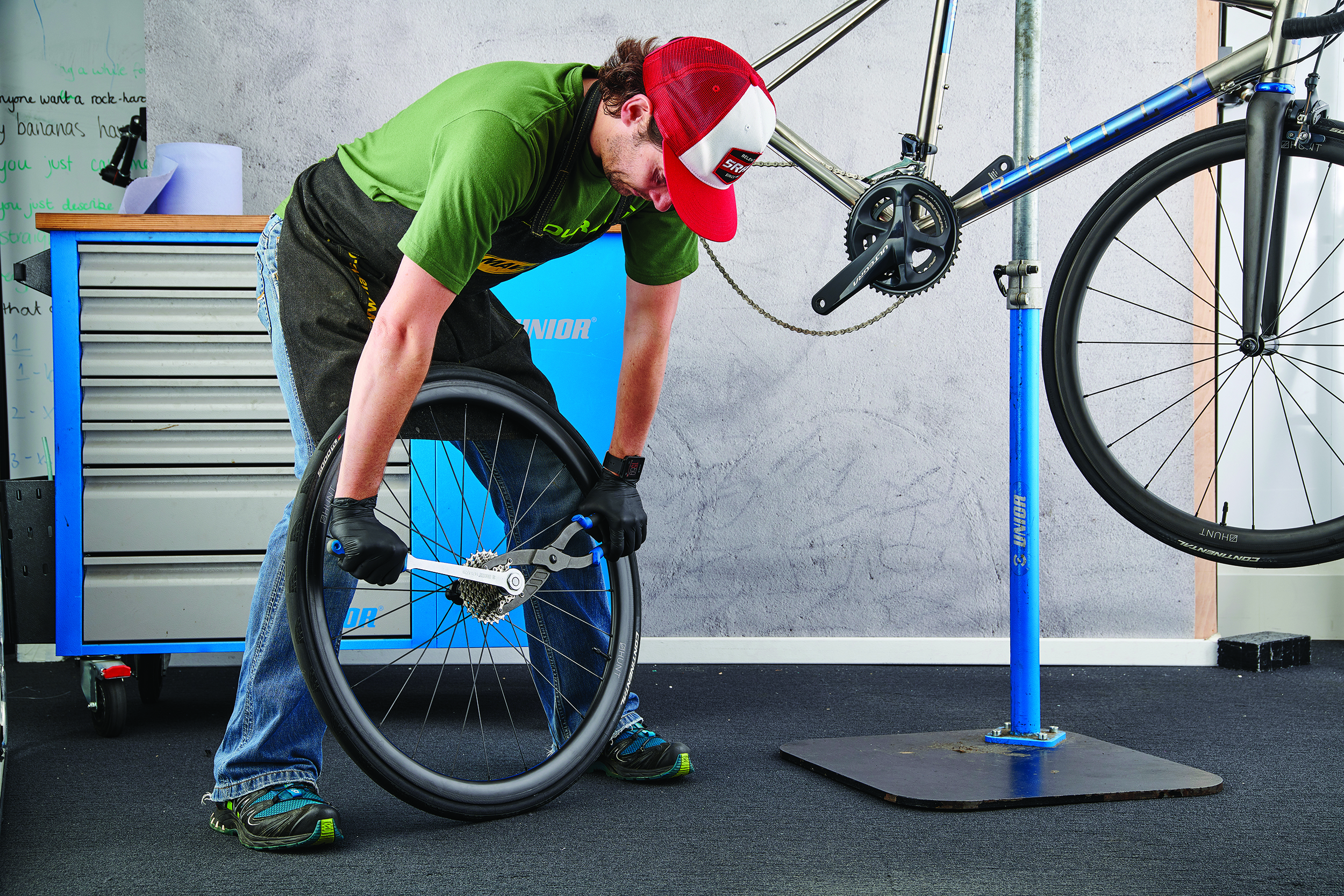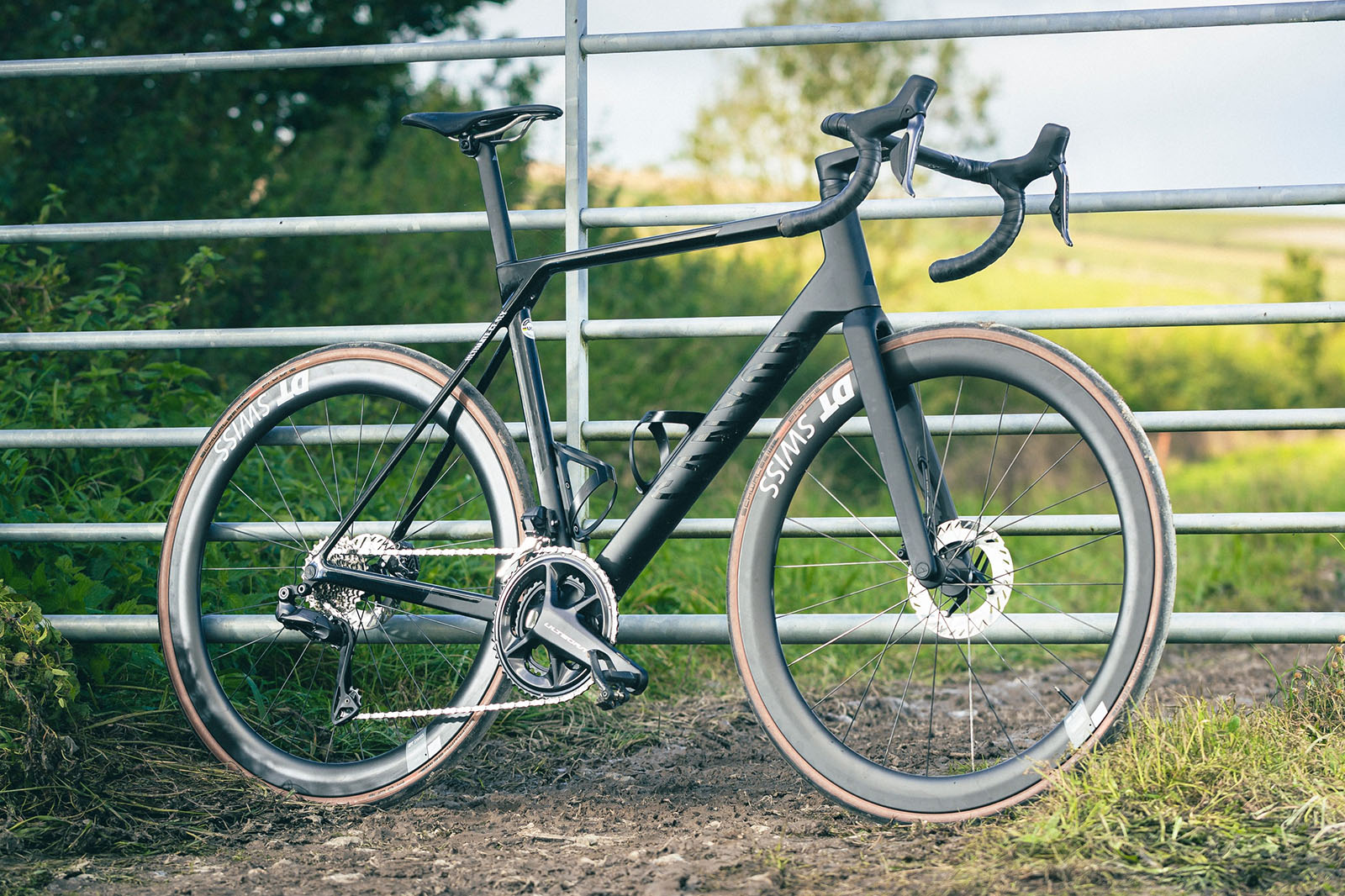Evans Cycles risks making a big mistake with its Go workshop-free stores
Evans Cycles recently announced plans to double down on opening Evans Go shops – workshop-free concessions housed within Sports Direct stores.
The UK national bike shop chain, which opened its first store in 1922, was purchased and absorbed into Mike Ashley’s Frasers Group (Sports Direct is part of its portfolio) in 2018 when it fell into administration.
However, the workshop is the beating heart of a bike shop and to do away with this crucial function is a big mistake.
Why workshops matter
The function of a bike shop extends far further than simply selling new bikes to customers.
Every bike a shop sells makes its way through the workshop at least once. New bikes arrive in a box and need to be assembled, with a qualified mechanic performing a pre-delivery inspection (PDI) to ensure they are safe and road or trailworthy.
This involves correctly torquing all bolts and setting up the gears and brakes.
An array of workshop tools is needed to correctly set your bike up, too, such as adjusting the handlebar height or saddle.
It’s not only new bikes that require the specialist touch of a qualified mechanic – bike shops also carry out warranty claims for the brands they sell. This involves performing investigations to find suspected faults to diagnose a problem or fitting replacement parts onto a bike.
And of course, workshops provide servicing packages so your bike can be kept in tip-top condition throughout its lifespan to make the components last longer. A good bike shop is a place you can wheel your bike into, no matter how sorry a state it’s in.

The best bike shops recognise the need to champion these workshop elements in addition to pure sales – after all, if you rest easy knowing your trusty bike shop has your back, your cycling experience will be rosier.
Given the foundational function the workshop provides for the bike shop, it’s therefore reasonable customers should expect a certain level of service from a bike shop vs buying online.
That’s on top of the knowledgeable staff bike shops usually hire, who might be able to offer insightful tidbits you didn’t learn from reading the product specs online.
A bike shop is only as good as its workshop

Now we’ve established the crucial role a workshop plays, to cut this function away is short-sighted. A workshop-free bike shop is like a restaurant without a kitchen.
You’re far more likely to remember a positive workshop experience at a bike shop than the taste of a coffee you enjoyed there or gazing at the latest superbike on display.
It’s the moment of relief when your bike is presented back to you with its previously persistent creak banished or the gears now running perfectly that will stick in the mind.

Evans’ decision to eradicate the workshop smells distinctly of profit before service. Surely the aim is to keep people on bikes, rather than just sell someone a new one?
It pains me to think of a world where I walk into a bike shop without the hustle and bustle of the workshop at its centre. And it’ll surely feel alien to those who walk into an Evans Go store hoping to get their bike serviced only to be turned away.
Riders will have to travel further to find an Evans store with a workshop or simply find an alternative local bike shop. I imagine the local bike shops based near these Evans Go stores will be rubbing their hands with glee at the thought of effortlessly nabbing new customers.

Some will reasonably question the difference between Evans’ strategy and brands with a direct-to-consumer model such as Canyon or Vitus.
Unlike those brands, which have essentially no physical retail premises, I would argue Evans’ physical presence is a sign of intent – a bike shop is a destination you make a journey to get to.
When you buy online, you’re aware of the potential cons compared to a bricks-and-mortar establishment and that’s (generally) reflected in the lower price.

In any case, I shan’t be an Evans Go customer and the decision to remove the workshop robs the shops of their identity.
While Mike Ashley may be known as the Robin Hood of the high street, scooping up failing brands into his Frasers Group portfolio, he’s arguably part of the root cause of its UK demise with his ‘stack it high, sell it cheap’ business model.
I predict all that will happen is ‘real’ bike shops will mop up those customers that Evans Go can’t serve and that can only be a good thing for independent businesses.
Only time will tell.